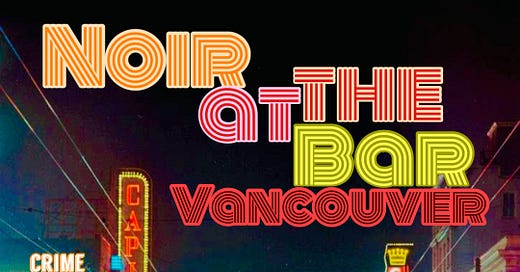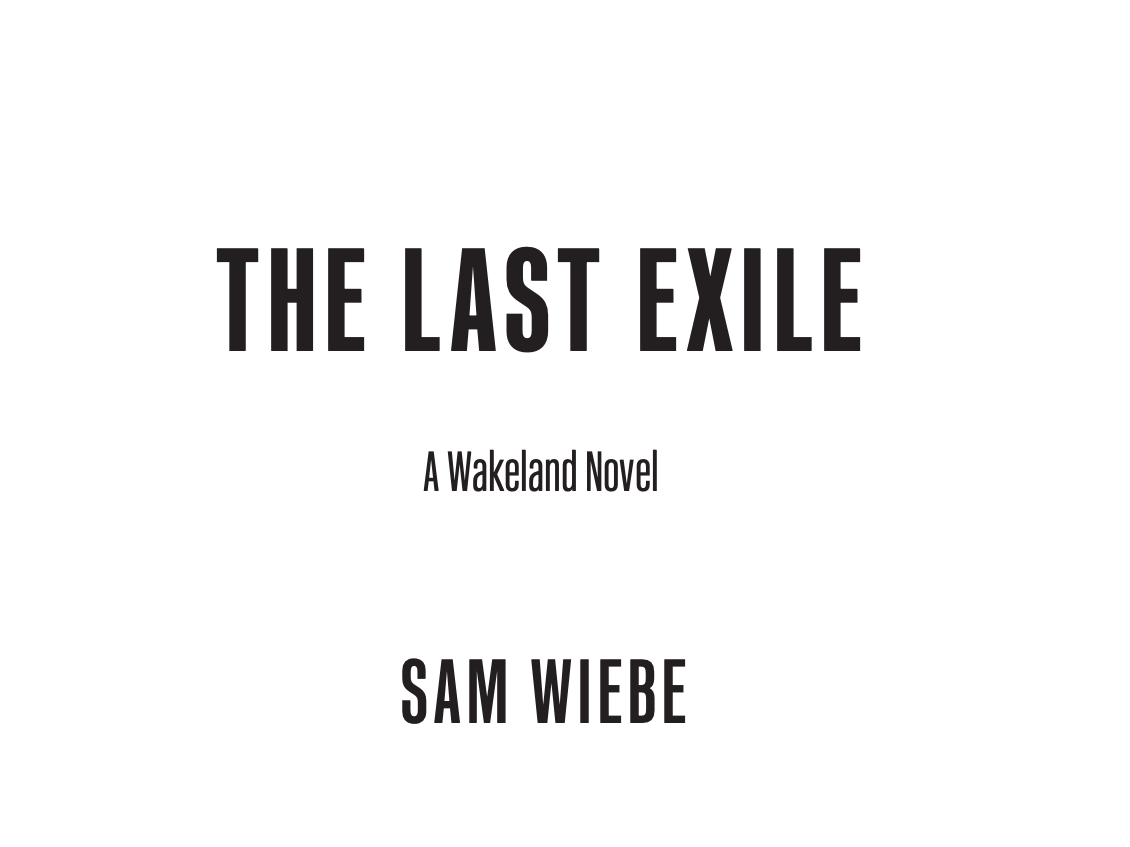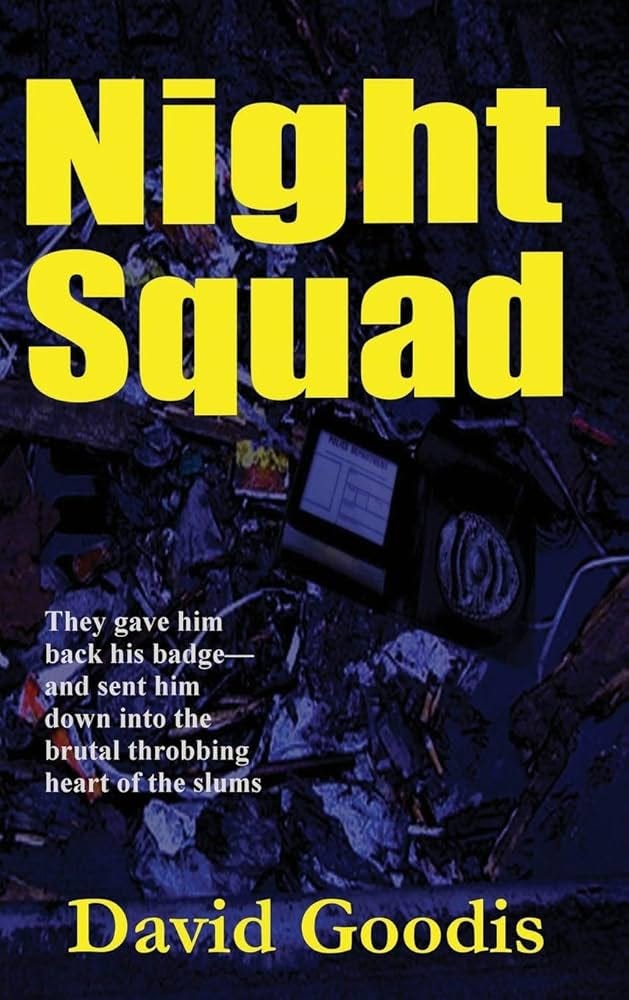I just finished proofing The Last Exile. The fifth in the Wakeland series comes out next Spring, but it’s available for pre-order now.
Ocean Drive is now available as an audiobook! Read by Kyle Snyder, who knows the area really well and gets a good sense of the story.
Speaking of audiobooks, A Lonesome Place for Dying read by Kevin Collins is on sale till the end of the month.
My article on how Simon Fraser University’s campus became the go-to filming location for science fiction films is up at Montecristo.
This Thursday is the return of Noir at the Bar Vancouver! Hosted at the Irish Heather, it should be a lot of fun.
It amounted almost to a favor when they finally caught him and marched him into city hall and took the badge away.
To my shame, Night Squad is the first David Goodis novel I’ve read. His work is in the same register of dead serious absurdity as Jim Thompson or Charles Willeford: hyperbole played as realism. And like those authors, it’s effective.
Corey Bradford is a crooked cop thrown off the force for taking bribes. Now a boozehound, Bradford happens to save the life of mob boss Walter Grogan, who runs the bad part of town, known as the Swamp. Grogan hires Bradford to find who tried to kill him.
Enter the Night Squad, the violent, quasi-legal police unit run by Detective-Sergeant Henry McDermott. Bradford is reinstated to help them get Grogan. To complicate things even further, the man tailing Bradford around town is the recently paroled husband of Bradford’s ex-wife.
Throughout the story, before things go wrong, Bradford feels a pain “very high on his thigh, near his groin.” The child of a murdered cop and an alcoholic mother, Bradford was bitten by a rat as an infant. As a backstory it’s a little over the top, but it adds a depth to Bradford’s character. He’s not the usual playing-each-side-against-the-other tough guy. He’s never quite resigned to his fate, even though he can’t escape.
The Swamp is also unique, since it’s both a figurative and literal description of the bad part of town: it borders an actual swamp. At one point Bradford is pursued and wades into the bog, clinging to a rock as his pursuers try to encircle him. One drowns. There’s a sense that Bradford survives because he’s of the place, born and raised and a part of it.
The Night Squad is an Ellroy-esque gang of psychopaths and ruffians led by the icy Sgt. McDermott. Like Coffin Ed and Gravedigger Jones in Chester Himes’s Harlem novels, they are cops suited to their beat, perhaps a little warped by it. These are war veterans, survivors of industrial accidents, cops who are shot and stabbed on an annual basis. Yet Goodis highlights how terrifying the Squad is are, both to Bradford and to the citizens of the neighborhood they serve and protect.
And yet Bradford wants to be a part, sees the Night Squad as a means of redemption. Night Squad has a moral complexity to its characters and world that sets it apart.
Goodis had early success with Dark Passage. The Bogart and Bacall film made from his book led to a job at Warner Brothers. “His collaboration with Hollywood was less than ideal,” his jacket bio reads. My first exposure to Goodis was Truffaut’s Shoot the Piano Player, an excellent French knockoff of a noir. It’s a cliché to say the French got American noir better than America, but Goodis’s writing seems to hinge on twisting clichés into art.







Will have to check this out. I really enjoyed Shoot the Piano Player and The Moon in the Gutter when I read them years ago, but I haven't really returned to him since.